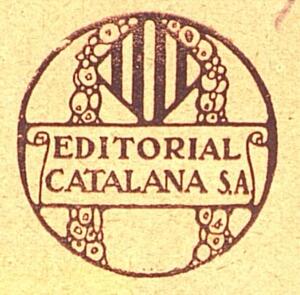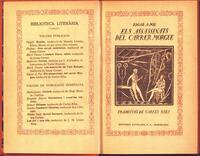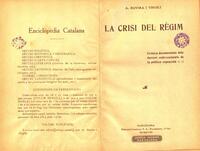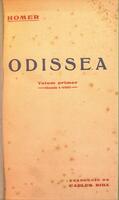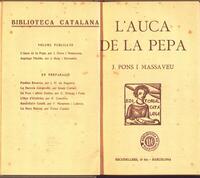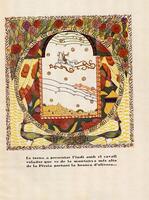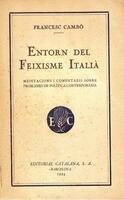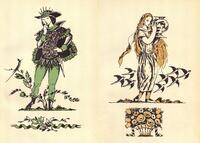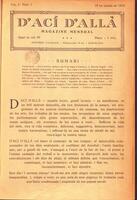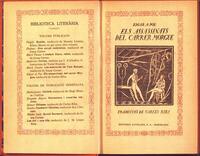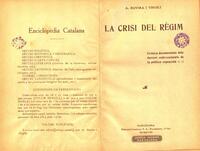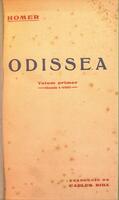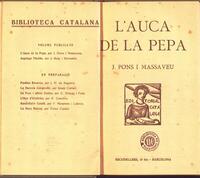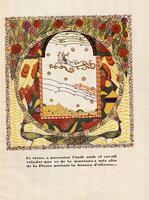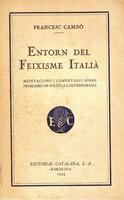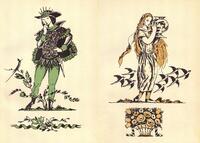Editorial Catalana
(Updated 08/10/2024)
Editorial Catalana was created upon the initiative of Enric Prat de la Riba, with Francesc Cambó at the helm of the board of directors, the brothers Josep and Pau Pugés as the managers and Josep Carner as the literary director until 1921. The publishing house started operating under the understanding that “Catalonia longs to achieve full intellectual realisation and to present itself to the world with a cultural baggage that is no less than any other European nation”. In this sense, Editorial Catalana sought to “Catalanise Catalonia, the Balearic Islands and Valencia in what is the most dignifying aspect of a people, its culture”. Another of its goals was to promote the intellectual output of Catalan authors and to show from the outset a huge amount of confidence in the possibilities of the market for books in Catalan.
+ informationSearch collections
Catalogue of publishers and booksellers from the Bergnes de las Casas collection (Biblioteca de Catalunya)
Catalogue of publishers of Catalonia until 1939 (Biblioteca de Catalunya)
Llanas, Manuel. L'edició a Catalunya. Segle XX (fins a 1939). Barcelona: Gremi d'Editors de Catalunya, 2005.
Editorial Catalana
Description
Editorial Catalana was created upon the initiative of Enric Prat de la Riba, with Francesc Cambó at the helm of the board of directors, the brothers Josep and Pau Pugés as the managers and Josep Carner as the literary director until 1921. The publishing house started operating under the understanding that “Catalonia longs to achieve full intellectual realisation and to present itself to the world with a cultural baggage that is no less than any other European nation”. In this sense, Editorial Catalana sought to “Catalanise Catalonia, the Balearic Islands and Valencia in what is the most dignifying aspect of a people, its culture”. Another of its goals was to promote the intellectual output of Catalan authors and to show from the outset a huge amount of confidence in the possibilities of the market for books in Catalan.
From the very start, it undertook a campaign to offer subscriptions, which gave subscribers the chance to purchase books and magazines in packages of various combinations.
It published four magazines: Agricultura, Catalunya marítima, D’ací d’allà and Revista de la vida municipal, and most of its works were grouped into three collections: Biblioteca Literària, which made universal literary masterpieces available in Catalan; Biblioteca Catalana, which was devoted to works created by Catalan authors; and the Enciclopèdia Catalana, with informative works on different topics. Titles on a variety of themes were published outside these collections, including school textbooks, contemporary literature, essays on economics and the travel books by Francesc Cambó.
In 1925, the publishing house’s collection went to the Llibreria Catalònia, owned by Antoni López-Llausàs, Manuel Borràs de Quadras and Josep Maria Cruzet, who for a period of time continued to reissue some of the titles in its catalogue.
Editorial Catalana
Authors
In the Biblioteca Catalana collection, Editorial Catalana published literary works created by Catalan authors. The Biblioteca Literària collection included authors of great works of literature from around the world, with translations by prestigious Catalan authors like Josep Carner and Carles Riba.
Bosch Gimpera, P. (Pere), 1891-1974
Cambó, Francesc, 1876-1947
Carner, Josep, 1884-1970
Català, Víctor, 1869-1966
Dickens, Charles, 1812-1870
Fabra, Pompeu, 1868-1948
Homer, s. VIII a.C.- s. VIII a. C.
Molière, 1622-1673
Poe, Edgar Allan, 1809-1849
Pons i Massaveu, Joan, 1850-1918
Riba, Carles, 1893-1959
Rovira i Virgili, Antoni, 1882-1949
Sagarra, Josep M. de, 1894-1961
Shakespeare, William, 1564-1616
Twain, Mark, 1835-1910
Virgili Maró, Publi, 70-19 aC
Editorial Catalana
Illustrators and photographers
Editorial Catalana
Collections
Editorial Catalana published most of its works in three collections: Biblioteca Catalana, which merged with Biblioteca Literària in 1923; Biblioteca Literària, the most famous collection which encompassed more than one-third of the publishing house’s entire output; and Enciclopèdia Catalana. The prestigious Fundació Bernat Metge collection, which featured Greek and Latin authors translated into Catalan, was launched in 1923 under the Editorial Catalana imprint, although later, in 1926, it moved to the Alpha publishing house.
Editorial Catalana
Outstanding works
-
The Biblioteca Literària collection published masterpieces of world literature in Catalan through translations by prestigious writers like Josep Carner and Carles Riba.
Poe, Edgar A. Els assassinats del carrer Morgue. Barcelona: Editorial Catalana, [1918?]
-
First issue of Enciclopèdia Catalana, a collection which sought to publish works containing basic information on politics, history, geography, art, literature, etc.
Rovira i Virgili, A. La crisi del règim: crònica documentada dels darrers esdeveniments de la política espanyola. Barcelona: Editorial Catalana, 1918.
-
Carles Riba published the first version of his translation of Homer’s Odyssey with Editorial Catalana. At that time, it was broadly celebrated because of both its faithfulness to the original and the poetry skill that Riba demonstrated in his adaptation of the classic hexameter to the Catalan language.
Homer. Odissea. Barcelona: Editorial Catalana, [1919?]
-
First publication of the Biblioteca Catalana, a collection devoted to literary works created by Catalan authors.
Pons i Massaveu, J. L’auca de la Pepa. Barcelona: Editorial Catalana, [1919?]
-
Illustration from El cavall volador... by Emili Ferrer, an illustrator and decorator, who also contributed to the magazines D’ací d’allà and La veu de Catalunya.
El cavall volador; i la història d’Alí-Babà i dels quaranta lladres. [Barcelona]: Editorial Catalana, [1922].
-
Editorial Catalana also published works that were not included in any collection, which shape a miscellany of around 20 titles, including school textbooks, contemporary literature, essays on economics and the travel books by Francesc Cambó.
Cambó, Francesc. Entorn del feixisme italià: meditacions i comentaris sobre problemes de política contemporània. Barcelona: Editorial Catalana, 1924.
-
Two of the four plates by Josep Obiols that illustrate the four stories contained in L’ingenu amor by Carles Riba.
Riba, Carles. L’ingenu amor. Barcelona: Editorial Catalana, 1924.
